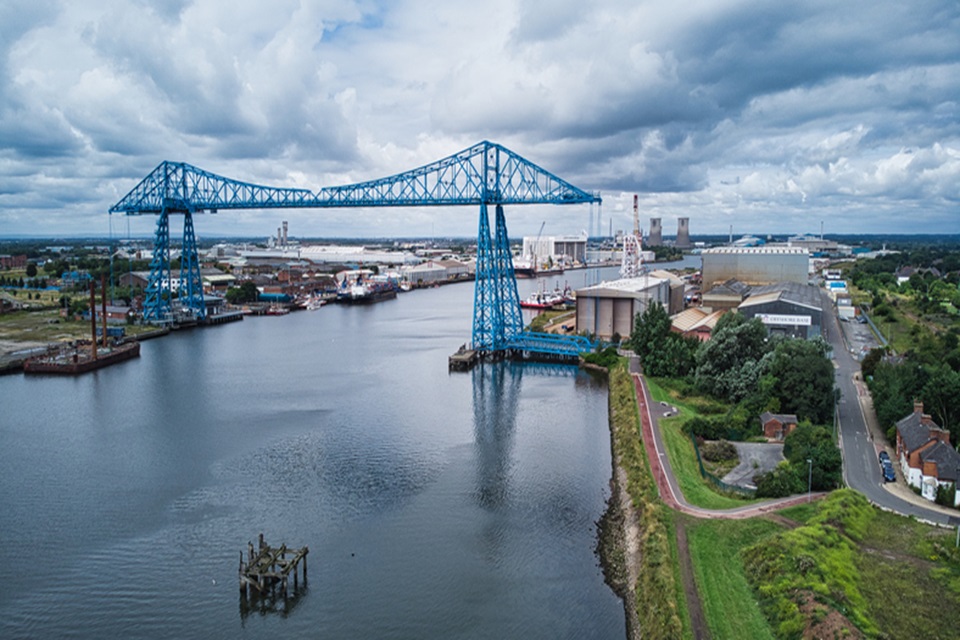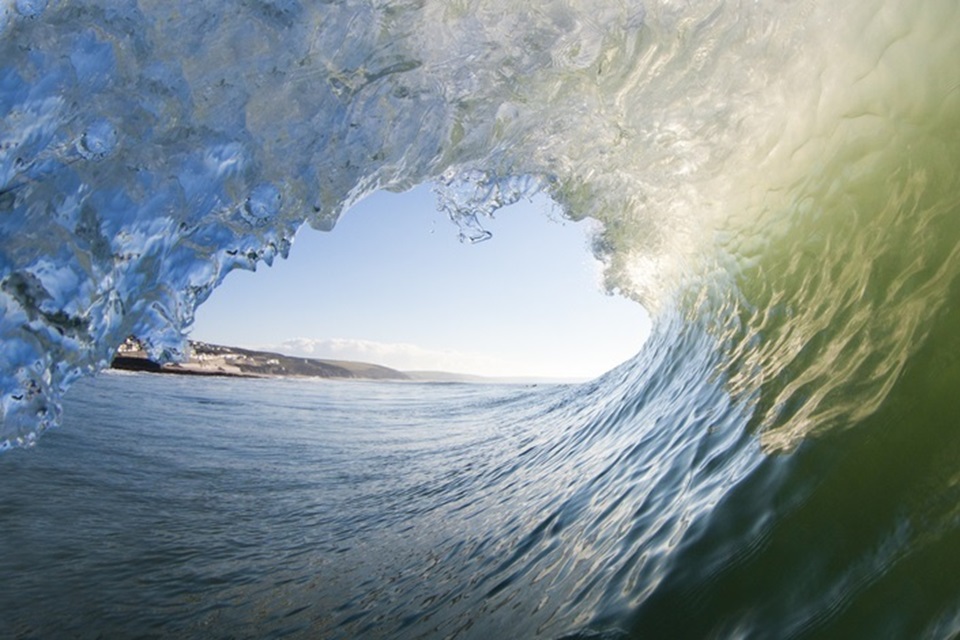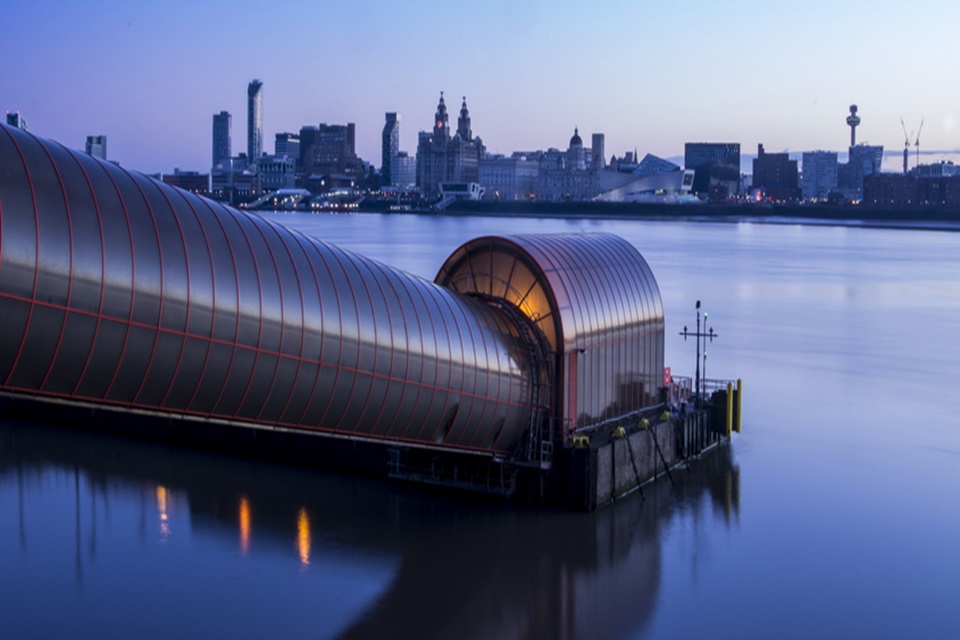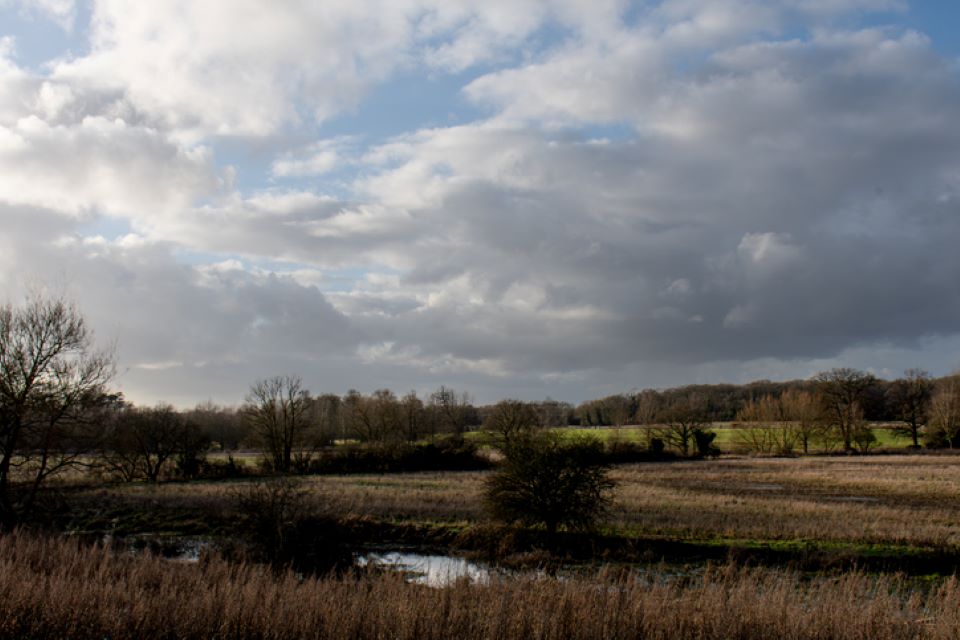The Marine Management Organisation (MMO) Marine Licensing team grants marine licences to protect and enhance England's marine environment.
New Habitat Structure in Teesside

The Tees Rivers Charitable Trust applied to MMO to install up to 18 dock wall fittings (vertipools) and up to three modular floating islands within Middlehaven Dock, near Middlesbrough, to increase biodiversity and available habitat for wildlife.
Each vertipool can store up to 1.5 litres of intertidal seawater, which increases the habitat for invertebrates. Up to three modular floating habitat islands will be installed consisting of up to 20 modules, made with a coconut fibre matting. They will be planted with up to 30 different freshwater and up to 13 different halophyte species, all of which are native to the UK.
The roots of the plants form valuable habitats and refuge for aquatic organisms such as juvenile fish, while also filtering the water. The platforms also provide roosting and feeding areas for birds.
As part of the application process, the marine licensing team carried out a Habitat Regulations Assessment (HRA) and consulted with relevant organisations.
Once completed, the project should increase local biodiversity and bring public amenity benefits by inspiring young ecologists and reconnecting the public with nature.
Floating Offshore Wind Demonstration Project

Wave Hub Limited applied to vary their existing marine licence in relation to the Twin Hub Floating Offshore Wind Demonstration Project. The variation would change their marine licence to allow 40mw of power rather than 32mw, and extend it for five years to January 2037 to allow adequate time for works to be completed following additional funding contracts.
The requested variation will also extend the operational period, because while floating offshore wind technology is relatively new, the design life of fixed bottom offshore wind farms often exceeds 30 years, the aim for floating wind technology is to achieve a similar, if not greater longevity.
The marine licensing team worked closely with both the applicant and advisors during and after the consultation, answering any follow up questions to ensure the application was processed as quickly as possible.
The changes to the marine licence will allow the project greater flexibility and improve the longevity of the floating wind farm.
Woodside Ferry Terminal Upgrade

Mersey Travel Limited applied for a marine licence to replace the Woodside ferry terminal in Merseyside.
The ferry service at Woodside, on the edge of The Wirral, dates back to the 13th century and a new ferry terminal was built during the 19th century. The aim of the development is to allow the Woodside ferry landing to operate for the next 25 years.
The works involve removing the linking bridge and installing new foundations called monopiles, which will support a replacement landing area.
The marine licensing team liaised closely with the applicant and consultees throughout the application process. The team also undertook a Habitats Regulations Assessment (HRA) and included conditions on the marine licence to minimise impacts to the environment, including a working in cold weather ban to reduce impacts to birds during sensitive times.
Once complete, the new ferry terminal should vastly improve access for residents and tourists in the area.
Greatham Marsh Restoration

The Greatham Marsh Restoration project is centred on the restoration of intertidal habitat on low-lying land near Greatham Village in Teesside. The objective of the project is to restore Greatham Marsh and to enable the natural migration of intertidal habitats as sea levels rise. BAM Nuttall contractors made a marine licence application to remove the tidal barrier, which is maintained by the Environment Agency, in order to connect the watercourse to the floodplain.
The work is part of a wider programme called Tees Tidelands, which will open the tributaries to tidal influence, enable fish passage and re-establish parts of the natural estuary.
The licence associated with the existing flood defence structure commenced in 1980 and will expire in 2029. One of the conditions of the original licence stipulates that when the licence expires, the works shall be removed, and the riverbanks and foreshore reinstated.
The removal of this structure would allow tidal flow to propagate upstream to flood the agricultural land and would allow the formation of both lower and upper intertidal marsh.
The marine licensing team provided ongoing support to the applicant, allowing them time to provide further information and respond to application updates.






